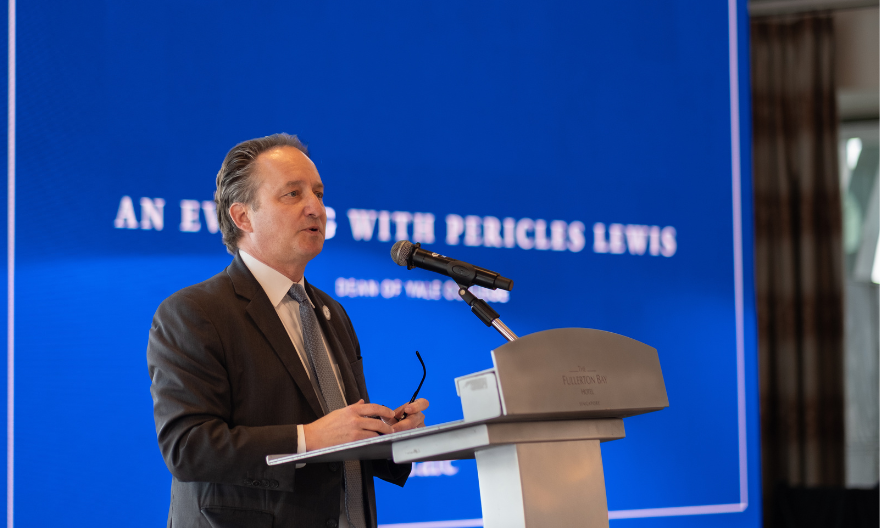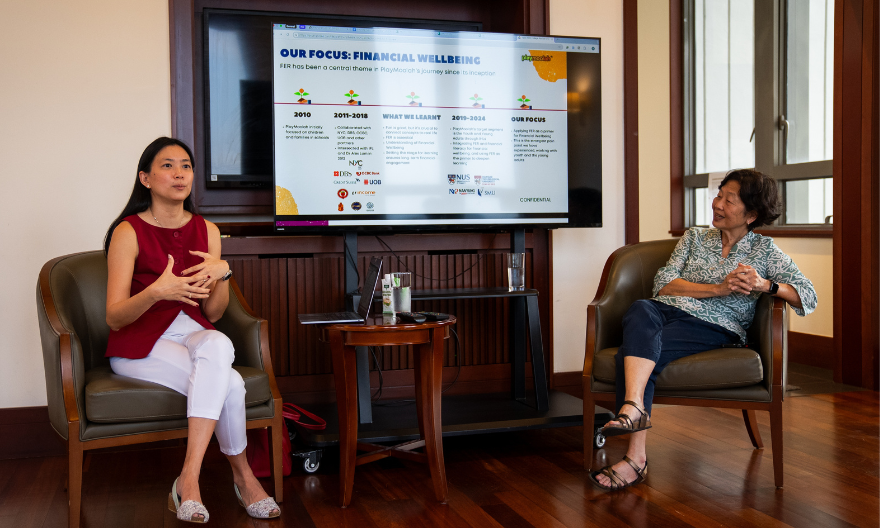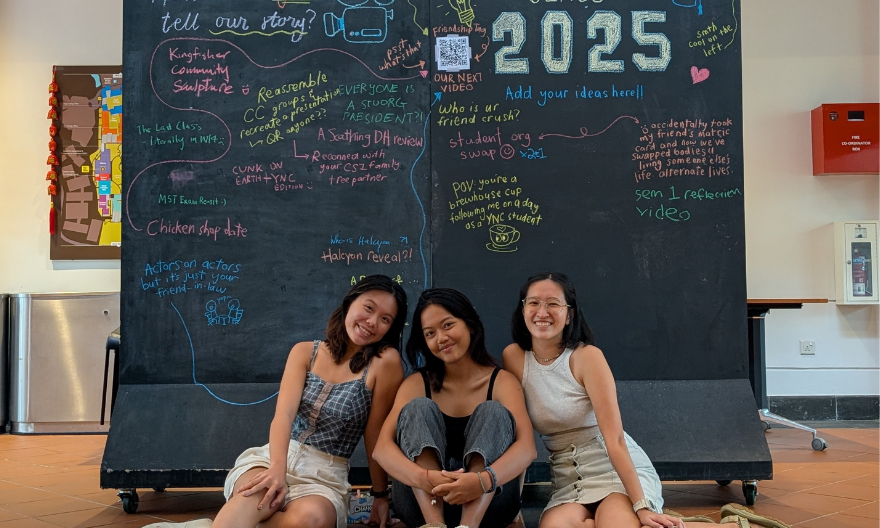Yale-NUS Global China Connection organised its first virtual global summit
As the COVID-19 pandemic continues to transform various aspects of our lives, it can be difficult to imagine how global collaboration would be like in the post-pandemic era. To shed light on this important topic, Yale-NUS Global China Connection (YNGCC)* worked with with universities across the globe to organise its first virtual global summit, which was held from 22 February to 18 April 2021.
The GCC 2021 Global Summit – The Way Forward: Global Collaboration in the Post Pandemic Era – focused on a wide range of topics relevant to challenges and opportunities in the post-pandemic world, in areas such as business, technology, healthcare trends, as well as the future diplomatic relations between China and the rest of the world. The event was a collaboration between YNGCC and institutions such as Cornell University, Duke-Kunshan University (DKU) and New York University (NYU). The online summit consisted of 13 panel discussions that collectively attracted around 1,500 sign-ups. Two of the panel discussions on trade and new retail in China and the Asia Pacific region were spearheaded by YNGCC, which saw over one hundred sign-ups.
 The Executive Committee of Yale-NUS Global China Connection (YNGCC). Image Provided by YNGCC.
The Executive Committee of Yale-NUS Global China Connection (YNGCC). Image Provided by YNGCC.
When asked about the group’s motivation for the summit, William Lee (Class of 2024), a member of YNGCC and a development associate at the global team that supports the coordination of the group’s international events, shared that it was a great opportunity to “tap into the global network and be involved with other chapters across the world”. Being one of the few active chapters in Asia, YNGCC was able to bring some unique perspectives to the summit.
While it was an exciting project for the team, working across time zones on a virtual summit posed some unique challenges. President of YNGCC Tan Hong Ying (Class of 2023) shared that accountability and communication were two key challenges throughout their planning. “Due to the time zone difference amongst the planning committee, sometimes it could be difficult for communication to happen. Moreover, due to the wide variety of communication channels being used (e.g. WeChat, Ding Talk) by members, communication becomes even more scattered,” Hong Ying explained. To manage such issues, she created a checklist of the tasks at hand to keep members accountable and keep track of crucial deadlines. She also emphasised the importance of weekly meetings with the global team, which helped different counterparts update one another on their progress.
All these efforts certainly paid off. Yale-NUS student Tavis Tan (Class of 2021), who participated in the panel discussions, shared that he was impressed by the diversity of panellists present, and the quality of the discussions they brought to the table. “The perspectives they brought added to the robustness of the discussions. Specifically, I gained a more nuanced understanding of ASEAN’s trade partnership with China, the role of the Asia-Pacific Economic Cooperation (APEC) in facilitating dialogue and the exchange of ideas, and the importance of developing a strong digital infrastructure,” he said.
 A screengrab of (from top left, clockwise) Tan Hong Ying (Class of 2023), CEO of MoWin Digital Ianton Tan, Assistant Professor (Economics) at Duke-Kunshan University Luyao Zhang, CEO of Airwallex (Greater China) Kai Wu, CEO of 8XP Faith Teo, and Benjamin Peck (Class of 2024) at the Panel Discussion: Riding the Tide of China’s New Retail Economy. Image provided by Tan Hong Ying.
A screengrab of (from top left, clockwise) Tan Hong Ying (Class of 2023), CEO of MoWin Digital Ianton Tan, Assistant Professor (Economics) at Duke-Kunshan University Luyao Zhang, CEO of Airwallex (Greater China) Kai Wu, CEO of 8XP Faith Teo, and Benjamin Peck (Class of 2024) at the Panel Discussion: Riding the Tide of China’s New Retail Economy. Image provided by Tan Hong Ying.
William and Hong Ying echoed this sentiment as organisers, and felt that the summit was an eye-opening experience. For William, the global nature of the event made it one of the highlights of his Yale-NUS experience so far. “Despite the [COVID-19] pandemic, this summit shows that we are still very well connected with the rest of the world. I was able to interact with many student leaders from all across the globe, and that was really amazing,” he said. Hong Ying shared that the highlight of her experience was seeing the panel come to fruition. “After such a long process of planning, seeing the panel come to life was very rewarding and fulfilling for me,” she said.
Moving forward, YNGCC hopes to continue collaborating with other institutions to facilitate similar dialogues. For example, the group is already planning to partner other universities in Asia, such as Tsinghua University and the University of Hong Kong (HKU) to host its annual China Summit. “We are also looking for alternative event formats, such as live-streaming, to better engage the audience. Hopefully the pandemic will subside, and we can host more in-person events in the future,” he said.
*Yale-NUS Global China Connection is part of a global network of more than 60 university chapters worldwide, which provides a platform for business partnerships and international networking among youth leaders, professionals, and businesses. Through its activities, the group strives to build cultural, professional, and academic connections between China and the world.




